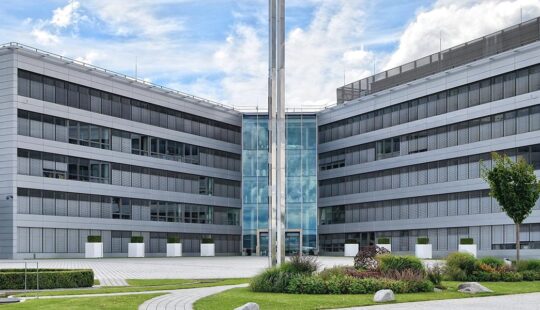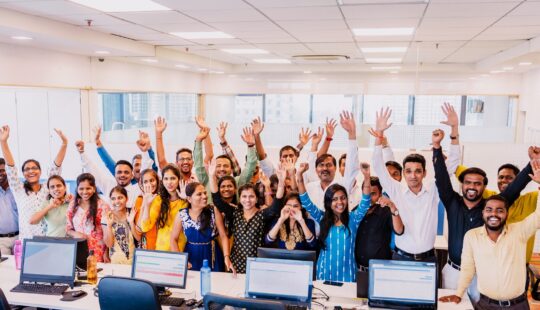Teachers, along with their students, are shaping the future of education with Science on Stage’s European Code League. Meet this year’s inspiring 2021 winner.
In the 1940s, Nobel Prize-winning Hungarian biochemist Albert Szent-Gyoergyi wrote: “The future will be like the schools are today.” In 2021, these words still ring true, even more so for the winners of the European Code League competition, Dr. Corina Toma and Mihaela Giurgea, along with their students from Tiberiu Popoviciu High School of Computer Science in Romania. Second and third place went to teams from Turkey and Greece.
Change Is the Only Constant, but Changemakers Are Ever Changing
The pandemic has been quite a revelation in this aspect, with unexpected and seemingly limitless opportunities presenting themselves and youth grabbing them with both hands.
According to a report by the World Economic Forum, around 65% of children who start primary school today will work in professions that do not even exist yet: their future lies in the hands of educators. To date, Science on Stage reaches about 100,000 teachers and teacher trainers in over 30 countries, providing a necessary network to exchange ideas and to scale them across Europe. And with 79% of participating teachers implementing the teaching ideas they’ve seen at Science on Stage festivals over the years, European Code League has proven that it’s possible for teachers and students to work together — even in the midst of a pandemic — to create inspiring, real-world science, technology, engineering, and mathematics (STEM) projects.
Organized by Science on Stage with the support of the SAP Corporate Social Responsibility (SAP CSR) team in Middle Eastern Europe, the European Code League is a competition to which teacher-student teams with innovative coding projects can apply. It was launched in 2020 as a follow up to Science on Stage’s successful coding project for STEM education.
“Science on Stage gave me the opportunity to find new ways to motivate my students to learn physics using ICT,” says Dr. Toma, who became a teacher after 10 years working as a physicist. “Physics is everywhere and happens at any time. In the classroom, I am at home. I like to talk with my students and explain all kinds of topics.”
Science on Stage Europe is a network for STEM teachers focusing on the exchange of best practice teaching ideas. The ultimate goal is to improve STEM teaching by supporting educators in their professional development and growth.
“Teachers are often the ideas, the starting point. Students who finish high school do not know what their role in the world will be,” Dr Toma adds. “These projects show how important it is to code, and also to learn STEM subjects like mathematics, physics, chemistry, and biology.”
CaeliBox, the winning coding project, used sensors to measure different air parameters such as concentration of CO2, humidity, pressure, temperature, noise, and other noxious substances in the studennts’ town. The data was transferred to a server so the students could access and work with it at any time.
“My town in Romania used to be small but now it is very big. As a result, the air is polluted because we have so many cars. CaeliBox is a useful device for STEM education and our students were happy to combine coding with physics and technology,” explains Dr. Toma, who adds that she faced many challenges trying to complete the project, from broken sensors to realizing they needed more space and swapping out their Arduino Uno for an Arduino Mega.
For Dr. Toma, Science on Stage is far more than a networking opportunity for teachers, it’s a community of like-minded educators: “At first, I saw that the education in Romania is very different from other countries, but then I realized that as teachers we have the same goals and can make the same activities. Science on Stage is a community to challenge our ideas and to understand that we are in the same place. SAP can be very proud for supporting STEM teaching training in Europe.”
There is no one way to make the world a better place. By helping discover and promote innovative teaching concepts among Europe’s science teachers, Science on Stage and the European Code League enable more students to gain the digital skills they need for a challenging future and encourage them to consider a career in science, ICT or engineering to help the positively change the world.
In a world shaped increasingly by technology and digitalization, teachers make the difference and the youth of today have so many more opportunities to learn and be the change.
The 12th European Science on Stage festival takes place March 24-27, 2022, in Prague, Czech Republic. Stay tuned to see amazing youth in action, redefining how a career in science, ICT, or engineering can help make a positive change in the world.



